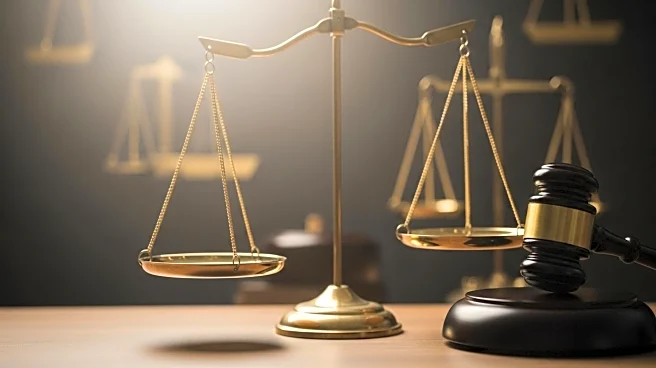What's Happening?
Tim Burke, a former video editor for Deadspin, has seen several charges against him dismissed in a federal case concerning his unauthorized access to video files from Fox News. The case, which has been ongoing for years, centers around Burke's acquisition of an unaired interview between Tucker Carlson and Kanye West, which contained antisemitic remarks. Burke was initially charged with fourteen federal offenses, including violations of the Wiretap Act. However, U.S. District Judge Kathryn Kimball Mizelle recently dismissed half of these charges, citing First Amendment violations. The judge's decision was based on the argument that prosecuting Burke under a federal privacy law could have a 'chilling effect' on free speech. Despite this legal victory, Burke still faces seven charges, including conspiracy and computer hacking, which could lead to significant prison time if he is convicted.
Why It's Important?
The dismissal of several charges against Tim Burke highlights the ongoing tension between digital media practices and legal boundaries. This case is significant for journalists and media professionals as it underscores the potential legal risks associated with accessing and disseminating sensitive information. The ruling also emphasizes the importance of the First Amendment in protecting journalistic activities, even when they involve controversial or unauthorized methods. The outcome of this case could set a precedent for how similar cases are handled in the future, potentially impacting how journalists and media consultants operate in the digital age. While some view the dismissal as a victory for press freedom, the remaining charges against Burke illustrate the complexities and potential consequences of navigating legal and ethical boundaries in journalism.
What's Next?
As the case progresses, Burke and his legal team will continue to defend against the remaining charges. The prosecution may attempt to amend their legal strategies to address the First Amendment concerns raised by the judge. The outcome of the remaining charges will be closely watched by media professionals and legal experts, as it could influence future cases involving digital media and privacy laws. Additionally, the case may prompt discussions within the media industry about best practices for handling sensitive information and the ethical implications of accessing unauthorized content.









